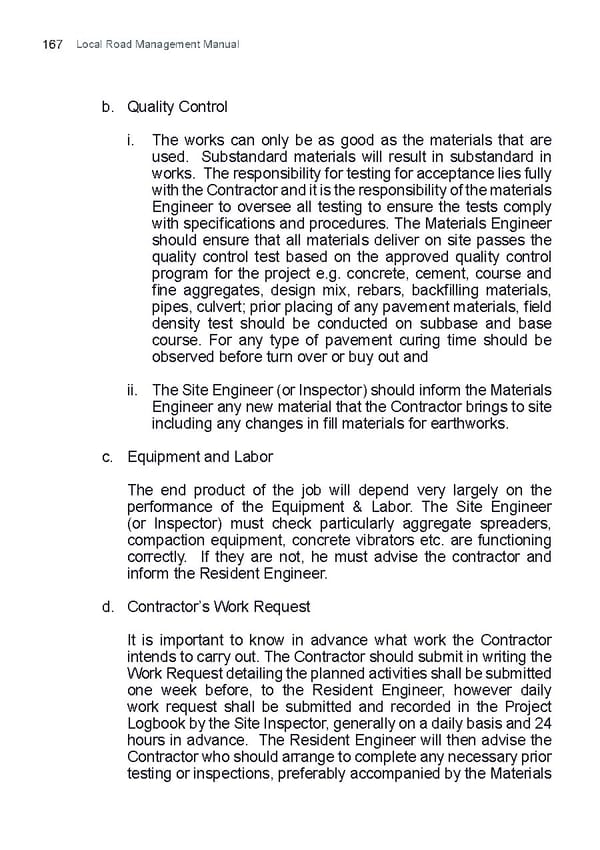Local Road Management Manual 167 b. Quality Control i. The works can only be as good as the materials that are used. Substandard materials will result in substandard in works. The responsibility for testing for acceptance lies fully with the Contractor and it is the responsibility of the materials Engineer to oversee all testing to ensure the tests comply with speciifcations and procedures. The Materials Engineer should ensure that all materials deliver on site passes the quality control test based on the approved quality control program for the project e.g. concrete, cement, course and ifne aggregates, design mix, rebars, backiflling materials, pipes, culvert; prior placing of any pavement materials, ifeld density test should be conducted on subbase and base course. For any type of pavement curing time should be observed before turn over or buy out and ii. The Site Engineer (or Inspector) should inform the Materials Engineer any new material that the Contractor brings to site including any changes in ifll materials for earthworks. c. Equipment and Labor The end product of the job will depend very largely on the performance of the Equipment & Labor. The Site Engineer (or Inspector) must check particularly aggregate spreaders, compaction equipment, concrete vibrators etc. are functioning correctly. If they are not, he must advise the contractor and inform the Resident Engineer. d. Contractor’s Work Request It is important to know in advance what work the Contractor intends to carry out. The Contractor should submit in writing the Work Request detailing the planned activities shall be submitted one week before, to the Resident Engineer, however daily work request shall be submitted and recorded in the Project Logbook by the Site Inspector, generally on a daily basis and 24 hours in advance. The Resident Engineer will then advise the Contractor who should arrange to complete any necessary prior testing or inspections, preferably accompanied by the Materials
 LRM Manual CMGP Page 166 Page 168
LRM Manual CMGP Page 166 Page 168